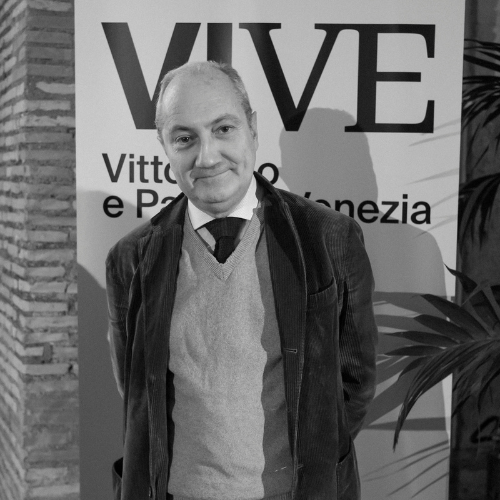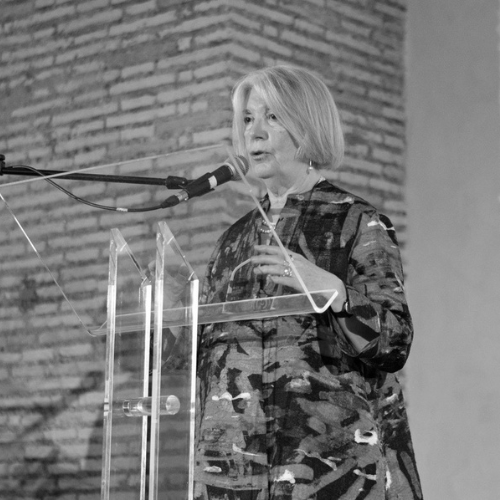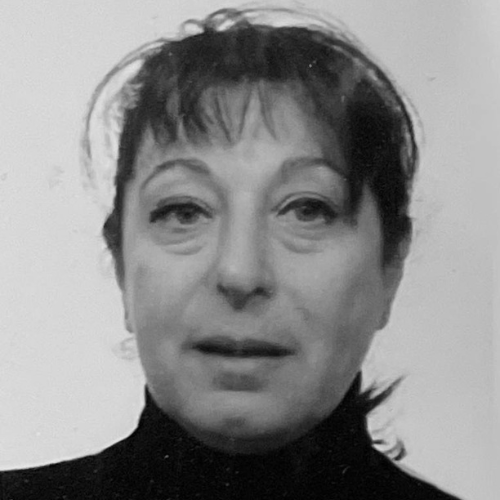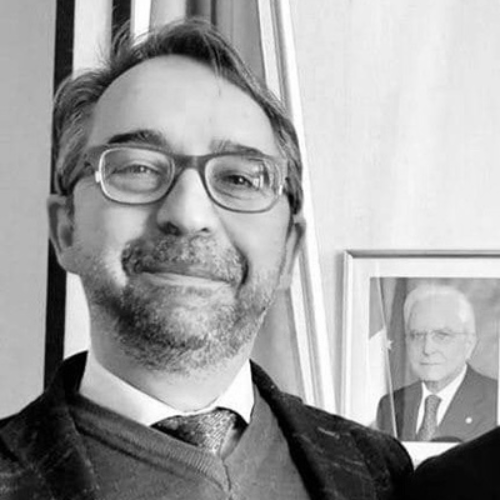SCIENTIFIC ORGANIZATION

Edith Gabrielli - Director of VIVE - Vittoriano e Palazzo Venezia
Married with two children, she studied at the “Sapienza” University of Rome and the London School of Economics and Political Science. She is an appreciated scholar in the fields of art history and museology, she has dozens of essays and monographs to her credit, published in national and international scientific forums.
In 1999 she joined the ranks of the Ministry for Cultural Heritage and Activities, from 2010 to 2015 she was Superintendent for the Historical, Artistic and Ethno-anthropological Heritage of Piedmont and the Scientific Director of the Conservation and Restoration Centre "La Venaria Reale" since January 2011: in Piedmont, among other things, she reopened Palazzo Carignano to the public and oversaw the museology project of the new Sabauda Gallery.
Returning to Rome, from 2015 to 2020 she directed the Museum Centre of Lazio: her management of 46 museums, archaeological areas and places of culture in the region, including the Pantheon, Castel Sant'Angelo and the Vittoriano, has achieved remarkable results both for the quality of the cultural offer and for the marked increase in the number of visitors and revenues.
Under her direction, which began in November 2020, the new Vittoriano and Palazzo Venezia institute is on its way to becoming a museum and exhibition centre of international importance. In 2023, the VIVE will reach 4 million visitors.

Mario Bevilacqua - Sapienza Università di Roma
Mario Bevilacqua, full professor of History of Architecture at Sapienza Università di Roma, is director of the Centre for Studies of Culture and the Image in Rome. He has curated exhibitions and scientific conferences, and published extensively on themes of the architecture, city and cartography of Rome between the late Middle Ages and the modern age.
His publications include: “Il Monte dei Cenci. Una famiglia romana e il suo insediamento tra medioevo ed età barocca” (Gangemi, 1997); “Roma nel secolo dei lumi. Architettura erudizione scienza nella Pianta di Roma di G.B. Nolli” (Electa Napoli, 1998); “Piranesi Taccuini di Modena” (Artemide, 2008); “Piante di Roma da Bufalini a Nolli” (Artemide, 2018).

Claudia Conforti - Università degli Studi di Roma “Tor Vergata”
Claudia Conforti, born in Fidenza (Emilia Romagna), was professor of History of Architecture in the Department of Business Engineering of the Università di Roma Tor Vergata. She has taught at the Università di Firenze, Paris-La Villette and L’Aquila. She is a member of the Accademia Nazionale di San Luca and an honorary academician of the Accademia di Belle Arti in Perugia; she is a member of the scholarly committees of the magazines “Casabella”, “Rassegna di Architettura e Urbanistica”, “ArtItalies” (Paris), “Abaton” (Madrid), “Città e Storia”.
Her studies are devoted to modern and contemporary architecture, construction, the city and society, on which she has produced numerous publications, articles, monographs, exhibitions, conferences and conventions.

Maria Grazia D’Amelio - Università degli Studi di Roma “Tor Vergata”
Maria Grazia D’Amelio is an architect and adjunct professor of History of Architecture and History and Urban Design at the Faculty of Engineering of Università Roma Tor Vergata. Her studies are mainly aimed at modern architecture and that of the early twentieth century. In particular, in 2009 she published a volume on the Obelisk of the Foro Italico for Palombi Editore and numerous essays on the architectural works of the pontificate of Alessandro VII Chigi.
She is currently involved in the project on building sites in the modern era: techniques, machines, words conducted with Biblioteca Hertziana di Roma - Max Planck Institute for the History of Art, participates in an international research on the construction of the Bedoin cathedral in Provence with the CNRS-Sorbonne Paris and the Sapienza Università di Roma, and in a study on the construction of the Fontana dei Fiumi in Piazza Navona in collaboration with Tod A. Marder of Rutgers University (New Jersey).
She is working on a monograph on the Baldacchino di San Pietro and she published essays on the practice of expropriation in seventeenth-century in Rome, on the ceremonials of laying the first stone and on the diffusion of construction techniques in sixteenth-century engravings.

Andrea De Pasquale - Direttore Generale Educazione, Ricerca e Istituti Culturali Soprintendente ad interim Archivio Centrale dello Stato
Andrea De Pasquale, graduated in Classics from Università di Torino and in Archival Studies, Paleography and Diplomatics from Archivio di Stato di Torino, graduated librarian from the La Sapienza Università Roma, PhD in book history from the École Pratique des Hautes Études (Sorbonne) in Paris. General Director of the Italian Ministry of Culture where he worked since 1999, he is currently Soprintendente ad interim of the Archivio di Stato, the largest Italian archive that preserves the documentary memory of Italy from the Unification to today. Previously he was director in this institutions: Biblioteca Palatina in Parma, Biblioteca Nazionale Braidense in Milan, Biblioteca Nazionale Universitaria in Torino, Biblioteca Nazionale Centrale in Roma and director of Servizio 1 - Study Office of the General Directorate of Education, Research and Cultural Institutes.
He is also scientific director of the Fondazione Museo Bodoniano, member of the scientific committee of the Fondazione L. Firpo in Turin; former member of the Scientific Technical Committee for libraries and cultural and tourism institutes; he was a teacher at the School of Higher Education of the CPAL – Istituto centrale per la patologia degli Archivi e del Libro and he taught in universities including the La Sapienza Università di Roma, the École Nationale de Chartes of Paris, and the universities of Bologna, Turin, Siena; he was a speaker in national and international conferences. He is the author of publications and essays relating the history of books and libraries, archival sources, and the digitization of cultural heritage.










